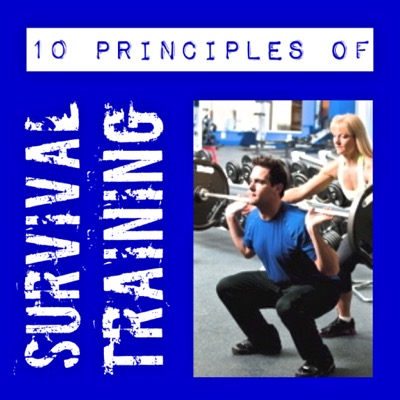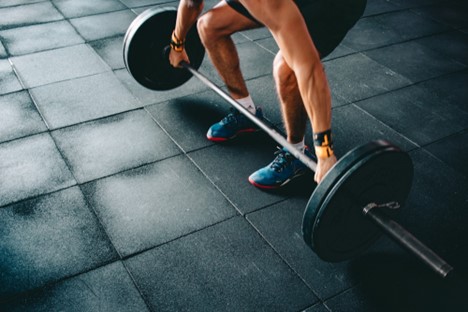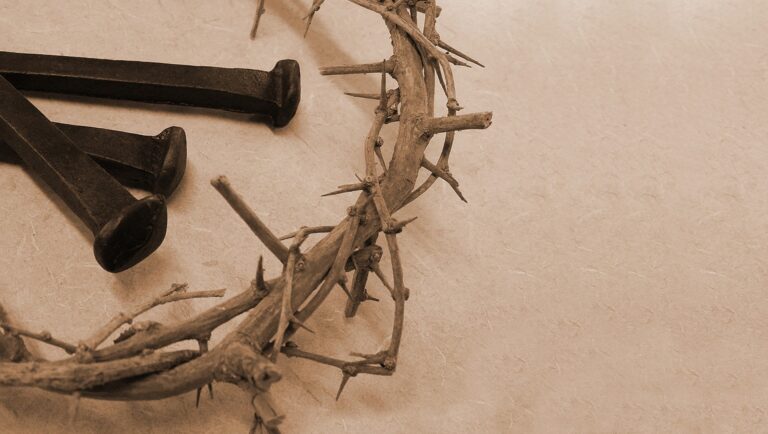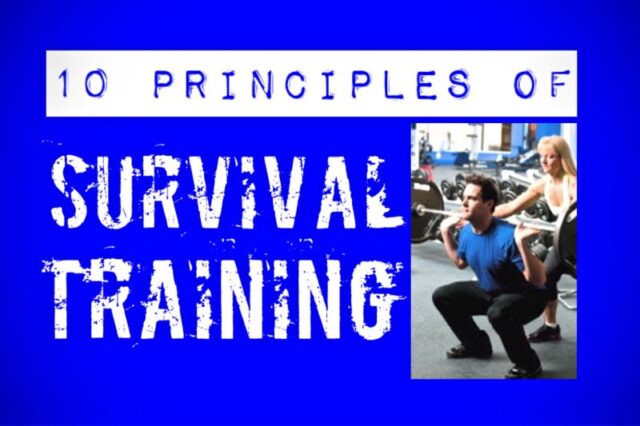
“You Americans have a lot of useless muscle.”
This observation came from “Chef Doom,” a French Sergeant who had complete control over my life and the life of my Special Forces A-Team for four weeks in December of 1990 while we were students at French Commando School. Chef Doom was not the man’s real name. I’ve forgotten it, if I ever knew it. “Chef” (Chef is French for the English word Chief) was the enlisted rank he held and the “Doom” came from the way we felt whenever the man appeared. When he showed up, we were in for pain. He was the chief of pain.
 I didn’t much like Chef Doom’s criticism of my Team’s fitness, but not because I wasn’t particularly fond of French Sergeants. I wasn’t and I’m not now. But I respected Chef Doom. He was a man that made you rethink everything you thought about the nature of his countrymen. No, the reason why I didn’t like his observation was that it was true and I knew it. Chef Doom didn’t say much, but what he said was usually pretty accurate. I had come to the French Pyrenees from Fort Bragg with twelve men, and we were down to six by the halfway point. All six were big tough men, but they were not tough enough and their size, while visually impressive, was of no use (actually counterproductive) at French Commando School. Hence, Chef Doom’s conclusion that Americans carried useless muscle. He was right. We did.
I didn’t much like Chef Doom’s criticism of my Team’s fitness, but not because I wasn’t particularly fond of French Sergeants. I wasn’t and I’m not now. But I respected Chef Doom. He was a man that made you rethink everything you thought about the nature of his countrymen. No, the reason why I didn’t like his observation was that it was true and I knew it. Chef Doom didn’t say much, but what he said was usually pretty accurate. I had come to the French Pyrenees from Fort Bragg with twelve men, and we were down to six by the halfway point. All six were big tough men, but they were not tough enough and their size, while visually impressive, was of no use (actually counterproductive) at French Commando School. Hence, Chef Doom’s conclusion that Americans carried useless muscle. He was right. We did.
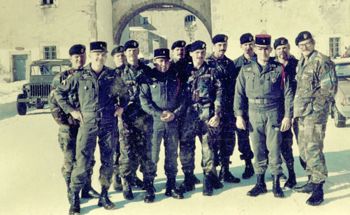 I was also nagged by the fact that it looked quite likely that I would return to Fort Bragg without a single man who had passed French Commando School. Zero for twelve is a bad gutter ball given that the trip probably cost my battalion $100,000. I did not envision a warm welcome back home. The fact that I had only met my team the day before we left, and thus had no role to play in our preparatory training, was something that I expected would be lost in the anger over our complete failure. It would be one thing if I made it through, but I had to admit to myself that my own survival was not looking good either. I had a case of tendonitis in my elbow that had me swallowing prescription Motrin by the dozen just to get through each day’s training and I could feel my stamina being drained away by the sleep/food deprivation and exposure to the harsh mountain cold. The worst part was that I knew my physical training was inadequate to the challenge. As the leader, that was completely unacceptable but it was too late for me to do anything about it except suffer.
I was also nagged by the fact that it looked quite likely that I would return to Fort Bragg without a single man who had passed French Commando School. Zero for twelve is a bad gutter ball given that the trip probably cost my battalion $100,000. I did not envision a warm welcome back home. The fact that I had only met my team the day before we left, and thus had no role to play in our preparatory training, was something that I expected would be lost in the anger over our complete failure. It would be one thing if I made it through, but I had to admit to myself that my own survival was not looking good either. I had a case of tendonitis in my elbow that had me swallowing prescription Motrin by the dozen just to get through each day’s training and I could feel my stamina being drained away by the sleep/food deprivation and exposure to the harsh mountain cold. The worst part was that I knew my physical training was inadequate to the challenge. As the leader, that was completely unacceptable but it was too late for me to do anything about it except suffer.
Like my fellow Team-members, my workout routine was basically weight-lifting and distance running. I was capable of short blasts of great physical effort (followed by lots of rest) and long sustained expenditures of low effort. French Commando School demanded neither of these skills. I was never asked to bench press 275 pounds or run five miles in forty minutes. I was asked to sustain and combine medium to high bursts of energy for long periods of time with little or no recovery. I knew after the first day that I was not trained for that, and was pretty sure after a couple of days that my men were not either. We wilted physically. Our big muscles were useless. Chef Doom was right. Physically, we were doomed to failure.
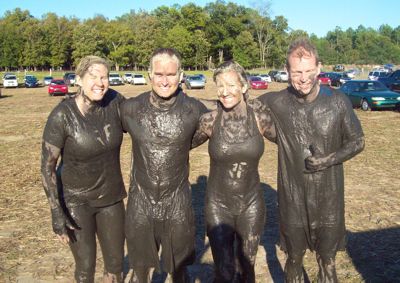 And yet, the remaining six of us survived. Not because we were stronger than the six who failed. We had the same useless muscle. The six survivors persevered mentally. There is no other explanation for it. Together, we willed ourselves to it. While the physical training (“PT”) system of the late-80s US Army was inadequate, the mental training system was not. In the four years prior to finding myself physically overmatched in the Pyrenees, I had graduated from Infantry School (basic and advanced), Airborne School, Ranger School, Special Forces Selection, Special Forces Qualification and SERE (Survival, Evasion, Resistance, Escape). I had been trained how to survive, and that is what I did.
And yet, the remaining six of us survived. Not because we were stronger than the six who failed. We had the same useless muscle. The six survivors persevered mentally. There is no other explanation for it. Together, we willed ourselves to it. While the physical training (“PT”) system of the late-80s US Army was inadequate, the mental training system was not. In the four years prior to finding myself physically overmatched in the Pyrenees, I had graduated from Infantry School (basic and advanced), Airborne School, Ranger School, Special Forces Selection, Special Forces Qualification and SERE (Survival, Evasion, Resistance, Escape). I had been trained how to survive, and that is what I did.
After half of us graduated from French Commando School, we took a train back to Paris, where I had two days to sit in a bathtub and think about what was wrong with the Army’s PT system. I’ve also had the last twenty years to think about what was right about its mental training system. Those thoughts together form the basis of what I think of as a Survival Training System which I have reduced to the following Ten Principles:
1. BURST AND RECOVERY
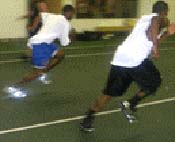 Chef Doom didn’t use any crazy ninja PT moves to beat us down, and he was no clipboard holder–he did every rep with us. His formula was simple and relentless. He cranked up the intensity of the workout and never stopped. We Americans were accustomed to doing sets of push-ups or pull-ups then recovering before we did anything else. Not Chef. He would do thirty pushups and then run 100 meters… over and over. As simple as that was, it just killed us. Where we did hand-to-hand training in a pit of soft sand or on mats, Chef took us on six-mile trail runs interspersed with flips, throws, kicks and punches. If you fell behind him on the run, you would find yourself stumbling into a circle of men and immediately being subjected to a shoulder throw on rocks, roots, and ice. There is a unique brand of pain that results from having the wind knocked out of you when you are already winded. I hated to admit it, but I knew the French system was superior. It reflected combat reality. You were most likely to be engaged in hand-to-hand combat exhausted and on the hard ground–not in an enclosed pit or on a mat in a nice warm gym. When I got back to Bragg, I incorporated what Chef had taught us, which I thought of as Burst and Recovery. Start and never stop. Over time, crank up the Bursts and shorten the Recovery. This is what real life will demand from your body. To survive, you need to train to it. This is how survivors train. They don’t train to train, they train to fight and win.
Chef Doom didn’t use any crazy ninja PT moves to beat us down, and he was no clipboard holder–he did every rep with us. His formula was simple and relentless. He cranked up the intensity of the workout and never stopped. We Americans were accustomed to doing sets of push-ups or pull-ups then recovering before we did anything else. Not Chef. He would do thirty pushups and then run 100 meters… over and over. As simple as that was, it just killed us. Where we did hand-to-hand training in a pit of soft sand or on mats, Chef took us on six-mile trail runs interspersed with flips, throws, kicks and punches. If you fell behind him on the run, you would find yourself stumbling into a circle of men and immediately being subjected to a shoulder throw on rocks, roots, and ice. There is a unique brand of pain that results from having the wind knocked out of you when you are already winded. I hated to admit it, but I knew the French system was superior. It reflected combat reality. You were most likely to be engaged in hand-to-hand combat exhausted and on the hard ground–not in an enclosed pit or on a mat in a nice warm gym. When I got back to Bragg, I incorporated what Chef had taught us, which I thought of as Burst and Recovery. Start and never stop. Over time, crank up the Bursts and shorten the Recovery. This is what real life will demand from your body. To survive, you need to train to it. This is how survivors train. They don’t train to train, they train to fight and win.
2. ENGAGE THE ELEMENTS
 If they had a gym at French Commando School I never saw it. We did everything outside, regardless of the temperature. I realized then, and still believe now, that there is a physical and emotional softening that results from working out in a brightly lit and temperature controlled environment. Your body and mind get accustomed to it. Outside, it gets cold and it rains. Your body can adapt to that, but it needs to be subjected to it. Only by engaging the elements can one learn to overcome them. Survivors are not slowed down by the bad weather, they use it to their advantage.
If they had a gym at French Commando School I never saw it. We did everything outside, regardless of the temperature. I realized then, and still believe now, that there is a physical and emotional softening that results from working out in a brightly lit and temperature controlled environment. Your body and mind get accustomed to it. Outside, it gets cold and it rains. Your body can adapt to that, but it needs to be subjected to it. Only by engaging the elements can one learn to overcome them. Survivors are not slowed down by the bad weather, they use it to their advantage.
3. TRAVEL LIGHT, FREEZE AT NIGHT
The best soldiers I knew were always the ones who were the least encumbered by comfort items. I knew a Captain who did not take a waterproof bag to the field because he did not want to be distracted by that set of dry BDUs he knew was in his rucksack. He’s a General now. I had a Sergeant on my Team who used to do these hilarious routines, one of which was called “My Watchword Is Personal Comfort”. It was a satire of the type of soldier who placed being warm, dry and well-fed above mission accomplishment. They take ammunition out of their rucksack to make room for a pillow, knowing full well that the enemy will not be engaging in a pillow fight. Survivors are the opposite. They travel light. They don’t carry things they don’t need. They accept that traveling light means “you’re going to freeze” when the sun goes down. Personal comfort is not the watchword of the survivor.
4. PLAN LONG, THINK SHORT
Survivors are good planners. They think about how many days they have until resupply and ration their water and chow accordingly. But once that long-range plan is made, they stop thinking about it. The survivor rations his food to last two-weeks but he does not dwell on the nice warm cot waiting for him at the end of those two weeks. His focus is on surviving today. Constant thoughts of tomorrow inhibit constant actions today.
5. ONE DAY OUTSIDE IS GREATER THAN A LIFETIME INSIDE
In SERE we were taught that it was a fallacy that the First E (Evasion) most often ended with a soldier being captured by the enemy. In fact, it’s surrender that usually ended an evasion. Why? Because evasion is difficult. You’re free, but you’re starving, sick, ragged and exhausted. Of course your mind begins telling you that the enemy will at least feed you and give you a bed. The siren song of “Three Hots and a Cot” slowly corrodes your desire to remain free until you cash it in, only to find that life behind the wire is just as hungry and sick as life outside–only without the freedom. Survivors value freedom highest among all things. They never trade it for personal comfort. They never quit.
6. YOU ARE RESPONSIBLE FOR YOUR OWN TRAINING
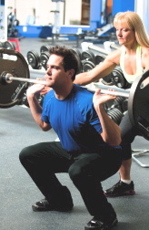 The YMCA I used to workout in had a sign on the wall that said “Be Responsible. Only use YMCA Certified Trainers”. Don’t get me wrong, I don’t think there is anything wrong with hiring a guy to teach you something that you don’t know. But that does not exempt you from the responsibility for your own training. All twelve men I took to French Commando School could and did do the PT prescribed by the Army. All of us routinely passed the Army PT Test with flying colors. We did everything the Army told us we needed to do to be fit enough to accomplish the mission, but we weren’t. Half of us failed physically and the other half only gutted it out mentally. I guess I could have considered that an anomaly or not considered it all. But that would not have been the act of a survivor. So I radically altered my Team’s PT program, and they all agreed that it was the right thing to do. We had been shown that what we were doing was lacking and because we were survivors it was irrelevant what anyone up or down the chain of command thought about it.
The YMCA I used to workout in had a sign on the wall that said “Be Responsible. Only use YMCA Certified Trainers”. Don’t get me wrong, I don’t think there is anything wrong with hiring a guy to teach you something that you don’t know. But that does not exempt you from the responsibility for your own training. All twelve men I took to French Commando School could and did do the PT prescribed by the Army. All of us routinely passed the Army PT Test with flying colors. We did everything the Army told us we needed to do to be fit enough to accomplish the mission, but we weren’t. Half of us failed physically and the other half only gutted it out mentally. I guess I could have considered that an anomaly or not considered it all. But that would not have been the act of a survivor. So I radically altered my Team’s PT program, and they all agreed that it was the right thing to do. We had been shown that what we were doing was lacking and because we were survivors it was irrelevant what anyone up or down the chain of command thought about it.
7. KEEP YOUR HAND OUT OF THE EXCUSE BAG
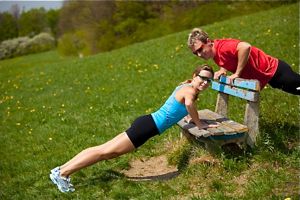 The Army PT test had both a raw score and an adjusted score. Your raw score was the number of pushups you could do in two minutes. It was adjusted by your age and gender. So, a forty year old women and a twenty year old man might both have an adjusted score of “95” for pushups even though she did twenty and he did sixty-five. I never understood or cared much about the rationale for this, if for no other reason than a bullet doesn’t know or care about your age and sex. To me it just encouraged excuse making and mediocrity. I can recall when I was a twenty-five year old soldier hearing a forty year old soldiers say “you should have seen me when I was your age.” Why? What would I have learned? A survivor never engages in such defeatist thinking. Surviving is age and gender neutral. A survivor never reaches for an excuse; he just overcomes the need to make one.
The Army PT test had both a raw score and an adjusted score. Your raw score was the number of pushups you could do in two minutes. It was adjusted by your age and gender. So, a forty year old women and a twenty year old man might both have an adjusted score of “95” for pushups even though she did twenty and he did sixty-five. I never understood or cared much about the rationale for this, if for no other reason than a bullet doesn’t know or care about your age and sex. To me it just encouraged excuse making and mediocrity. I can recall when I was a twenty-five year old soldier hearing a forty year old soldiers say “you should have seen me when I was your age.” Why? What would I have learned? A survivor never engages in such defeatist thinking. Surviving is age and gender neutral. A survivor never reaches for an excuse; he just overcomes the need to make one.
8. PAIN IS WEAKNESS LEAVING THE BODY
I first heard this expression during SF Selection twenty-three years ago. I heard it again the other day during a GORUCK Challenge cadre’d by some Green Berets who were in grade school when I went through selection. It gave me hope that in a culture that seems to be rapidly losing its ability to accept any kind of risk, loss or pain there is still some recognition that pain is a good and necessary part of growth. Pain during PT is irrefutable proof that it is working. Survivors recognize that more pain in training equates directly to less pain when training is over and the consequences are real.
9. COOPERATE AND GRADUATE
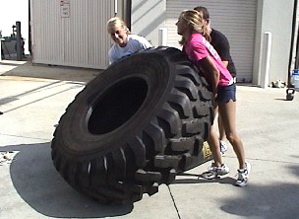 Some nights you hit the wall and some nights it’s your buddy’s turn. Operating as solos, like Rambo, you’re both meat. But together, you’re never weaker than you’re strongest link. This lesson was beat into me throughout my entire military career. Survivors band together and rely on one another’s skills and strengths. As tough and self-reliant as survivors are, they gain their true power from their own humility. They recognize their frailty. They cling to one another. Apart, they die. Together, they survive…only together.
Some nights you hit the wall and some nights it’s your buddy’s turn. Operating as solos, like Rambo, you’re both meat. But together, you’re never weaker than you’re strongest link. This lesson was beat into me throughout my entire military career. Survivors band together and rely on one another’s skills and strengths. As tough and self-reliant as survivors are, they gain their true power from their own humility. They recognize their frailty. They cling to one another. Apart, they die. Together, they survive…only together.
10 LOVE IS SURVIVAL FOOD
G.K. Chesterton said that the true solder fights not because he hates those in front of him but because he loves those behind him. Hate doesn’t work. At best, it’s like adrenalin. It might get you through a short-term confrontation, but will not sustain you through the long haul. Only love will do that. Of course survivors have a healthy dose of self-interest, but so do non-survivors. So there has to be something else that makes the difference between surviving and succumbing. I contend that something to be love. Survivors love their buddies and want to see them through. Survivors love their families and want to see them again.
That kind of love is survival food. Jesus Christ is the ultimate source of this love. He should be the Lord and King of all survivors. He became flesh simply because God so loved us that He sent His only son to show us how it is done. He survived so that we may live. What more does a survivor need to know?
 Dave Redding currently practices law in Charlotte, North Carolina. From 1985 to 1994, he was active duty Army Infantry and Special Forces Officer. He is a graduate of the Army Airborne School, Ranger School, Special Forces Qualification Course and SERE. He is also a graduate of French Commando School. He has a wonderful wife and three lovely daughters to keep his testosterone in check. In 2011, he was part of a three-man team that started the men’s workout and community leadership group known as F3. Since its modest founding in a grade school parking lot, F3 has expanded to a bunch of other parking lots in North Carolina, Florida and Texas. Dave, or Dredd as he is known in F3, is currently the Nant’an of F3Nation.
Dave Redding currently practices law in Charlotte, North Carolina. From 1985 to 1994, he was active duty Army Infantry and Special Forces Officer. He is a graduate of the Army Airborne School, Ranger School, Special Forces Qualification Course and SERE. He is also a graduate of French Commando School. He has a wonderful wife and three lovely daughters to keep his testosterone in check. In 2011, he was part of a three-man team that started the men’s workout and community leadership group known as F3. Since its modest founding in a grade school parking lot, F3 has expanded to a bunch of other parking lots in North Carolina, Florida and Texas. Dave, or Dredd as he is known in F3, is currently the Nant’an of F3Nation.
